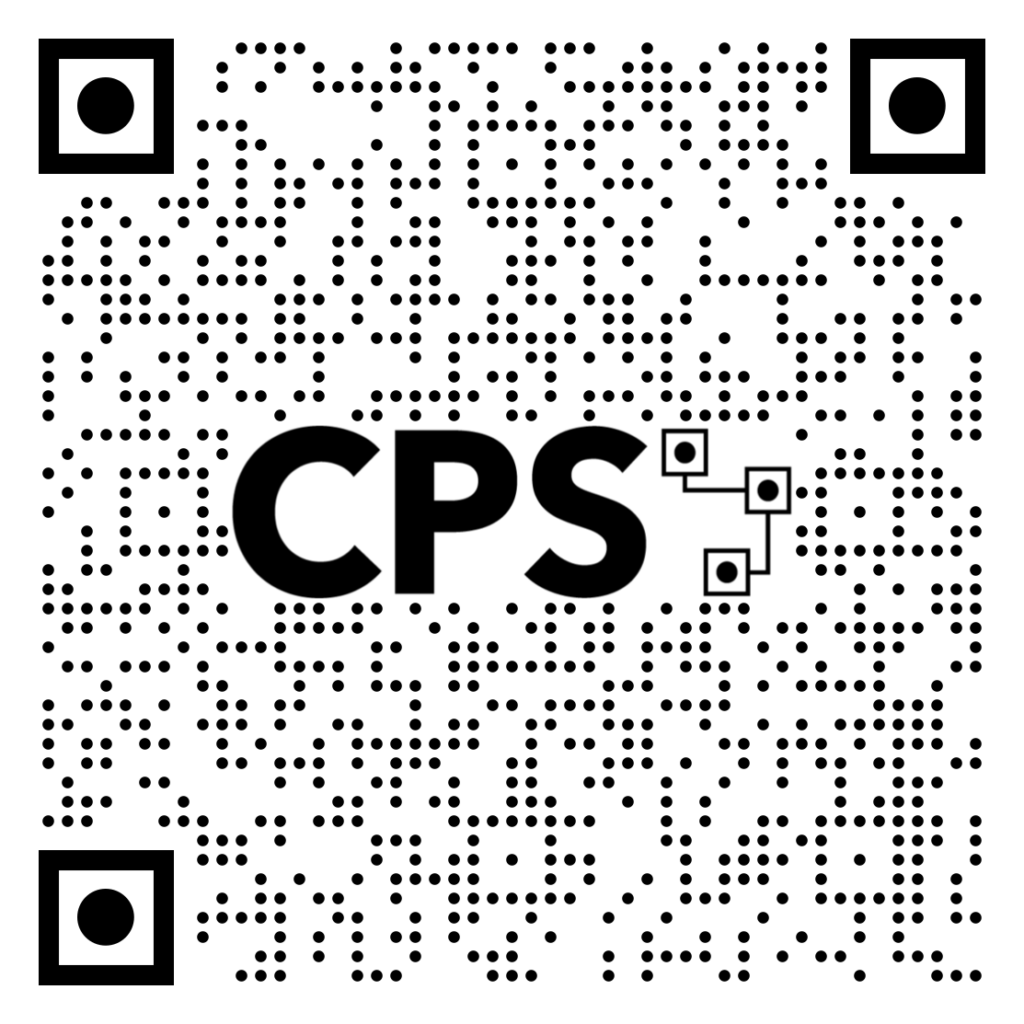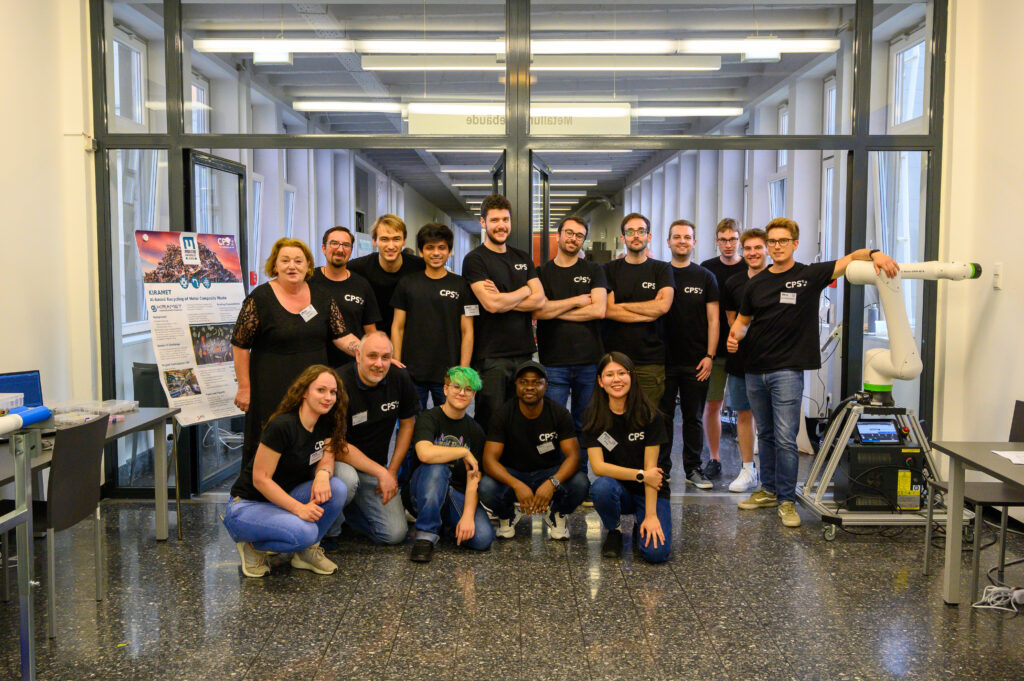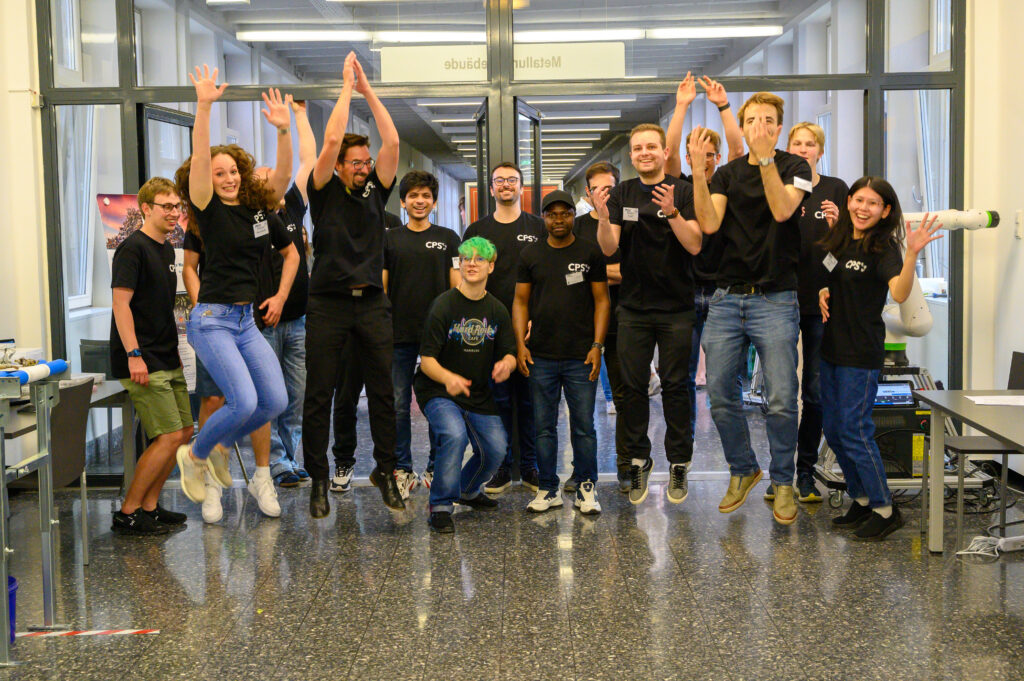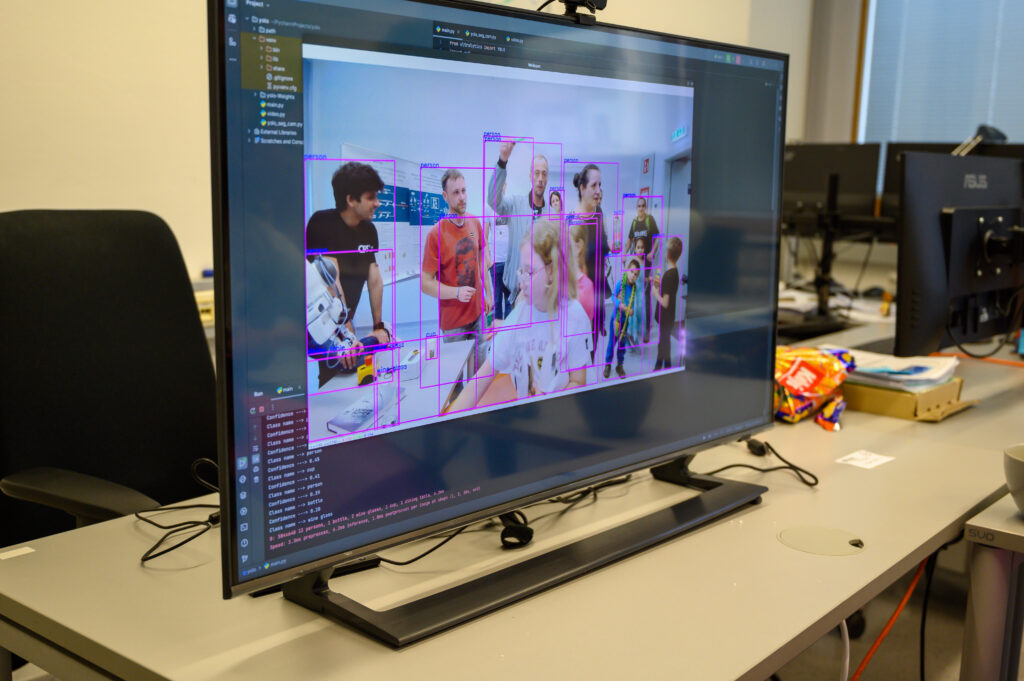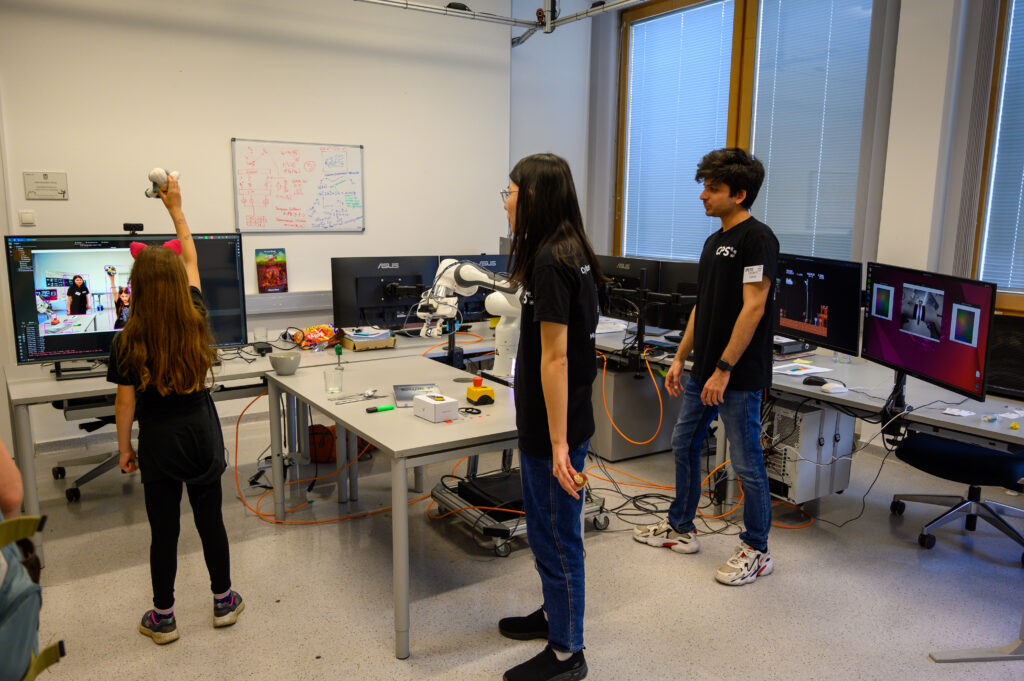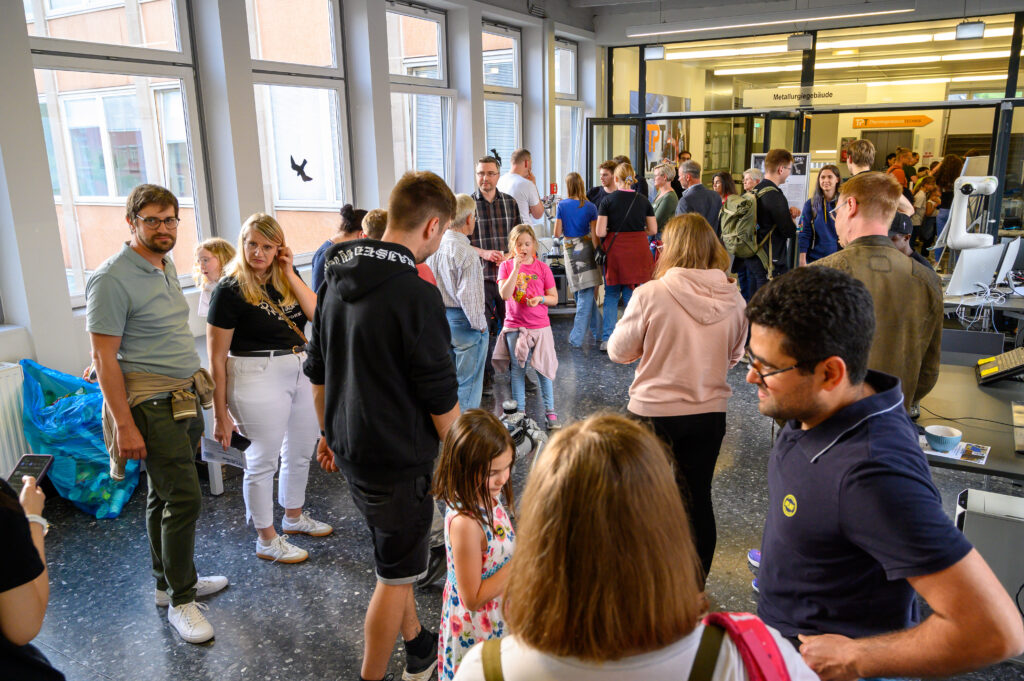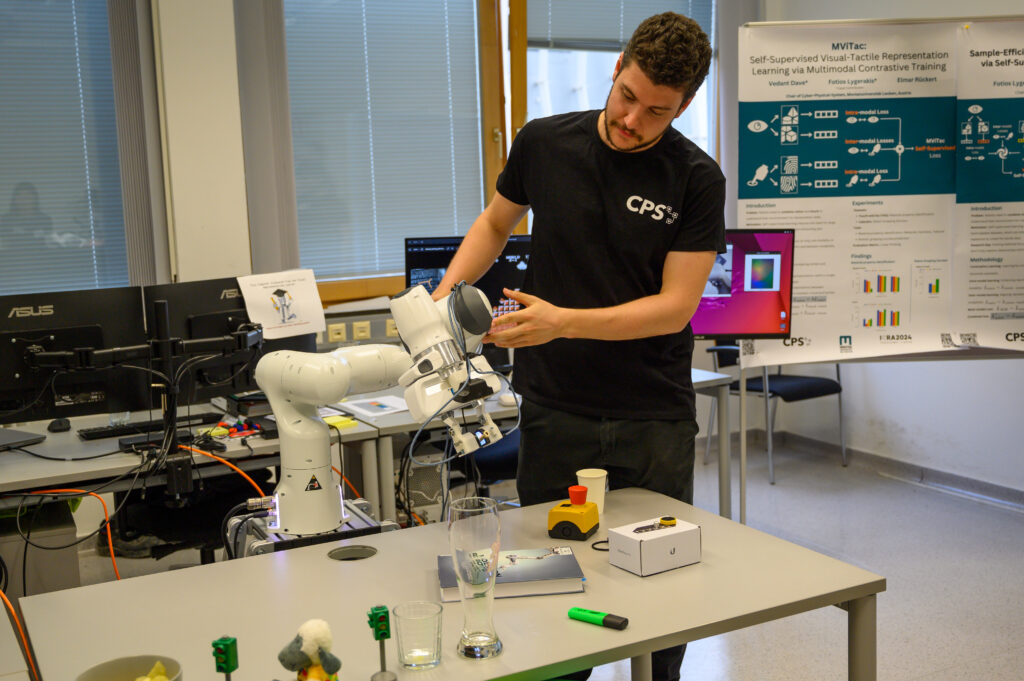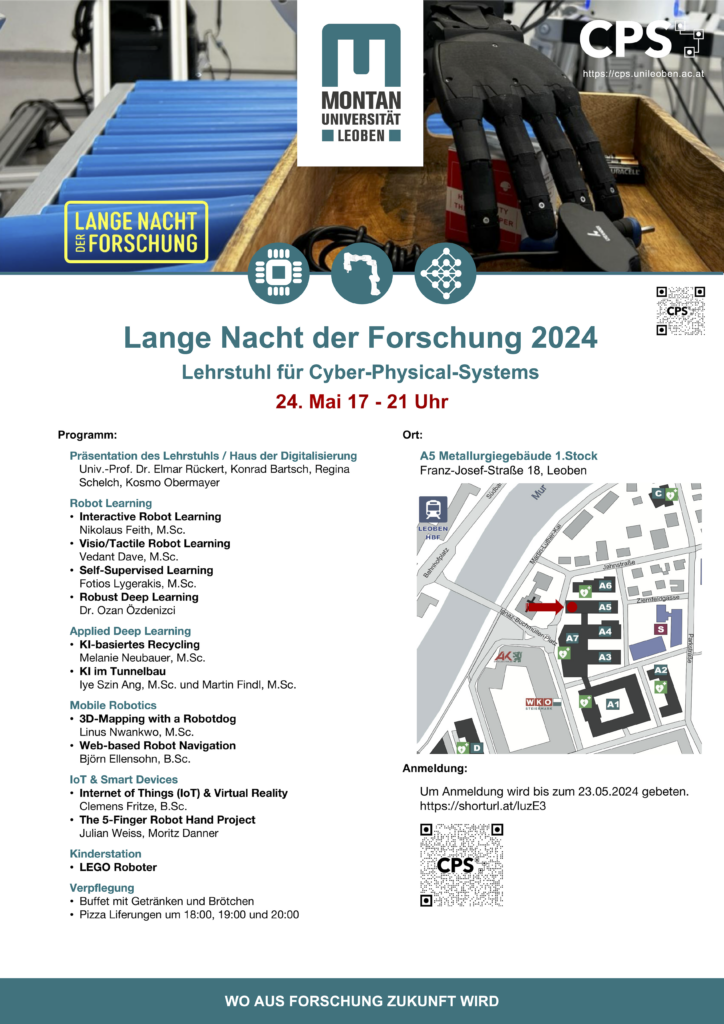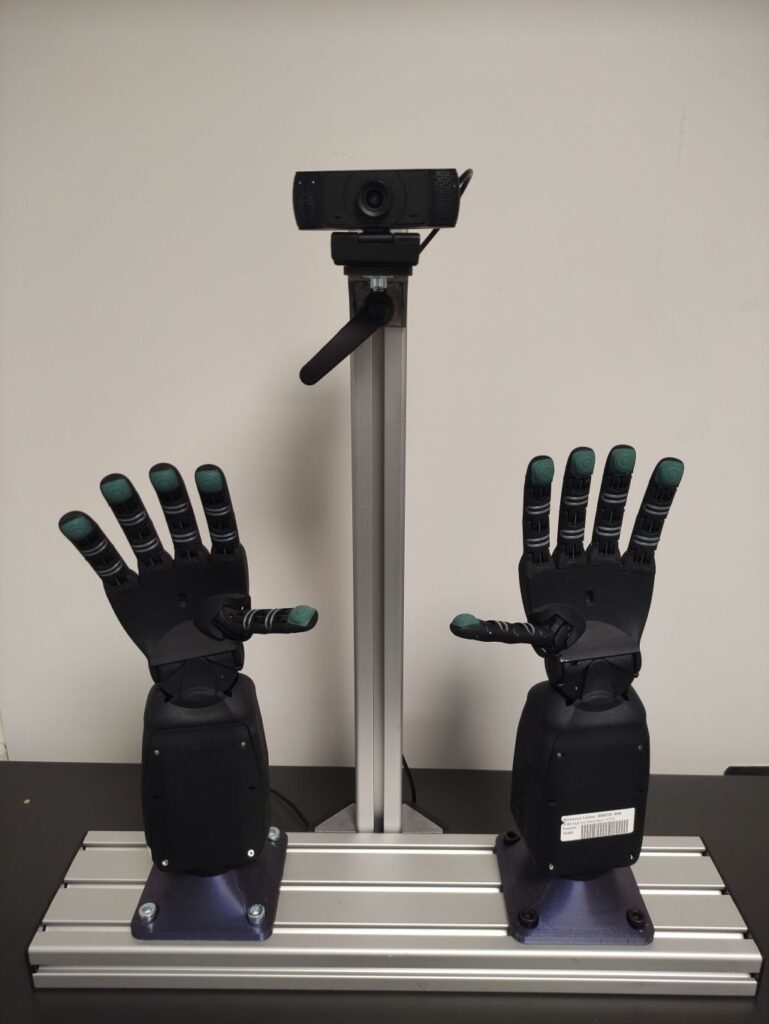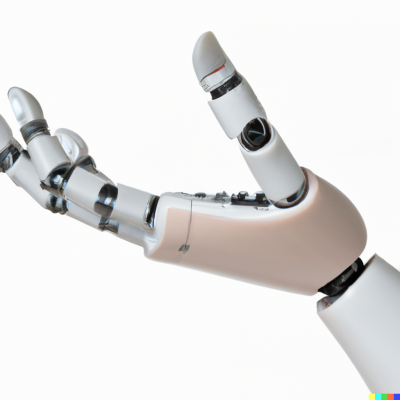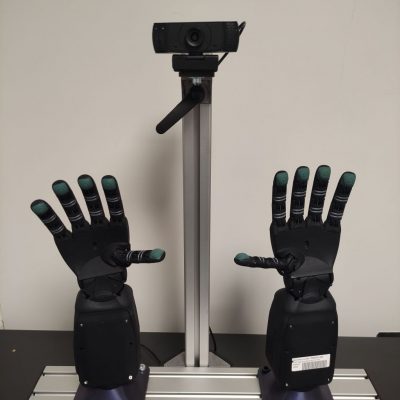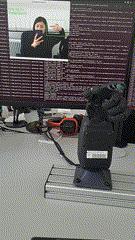Supervisor: Univ.-Prof. Dr Elmar Rückert
Project: K1-MET P3.4
Start date: 1st of May 2024
Theoretical difficulty: high
Practical difficulty: mid
Topic
The the steel production, the steel quality heavily depends on the dynamic processes of the meniscus level fluctuations in the mold. These complex dynamic processes can be observed using IR cameras observing the surface level and the casting powder temperature.
The goal of this thesis is to develop and compare deep learning approaches (CNNs, transformers) for predicting fluid dynamics in lab prototype environment.
Tasks
- Literature research of state of the art, see references
- Lab prototype environment for generating complex (structured and chaotic) fluid dynamics
- Dataset recording, visualization and annotation
- Deep Learning algorithm implementation (CNNs & Transformers)
- Evaluation on different datasets (predictable dynamics, complex dynamics, synchronous and async. surface level dynamics, chaotic dynamics).
- Thesis writing.
References
- Enhancing computational fluid dynamics with machine learning R Vinuesa, SL Brunton, Nature Computational Science, 2022.
- Current and emerging deep–learning methods for the simulation of fluid dynamics M Lino, S Fotiadis, AA Bharath… – Proceedings of the …, 2023.
- Unsupervised deep learning of incompressible fluid dynamics, N Wandel, M Weinmann, R Klein, arXiv preprint arXiv:2006.08762, 2020.


